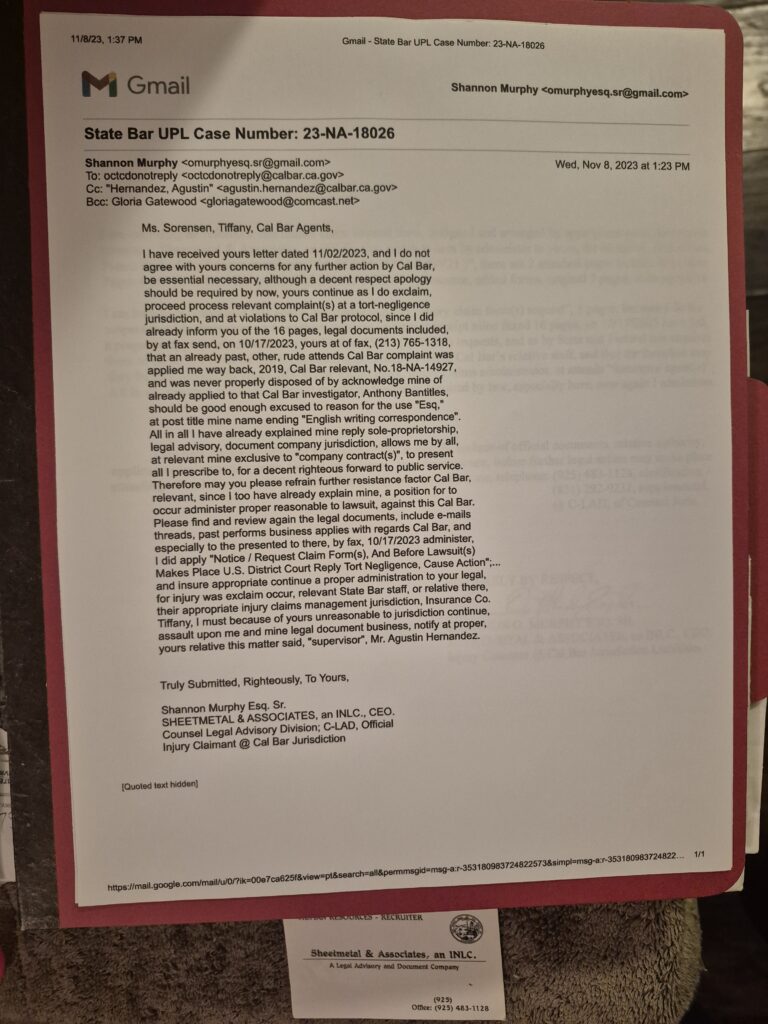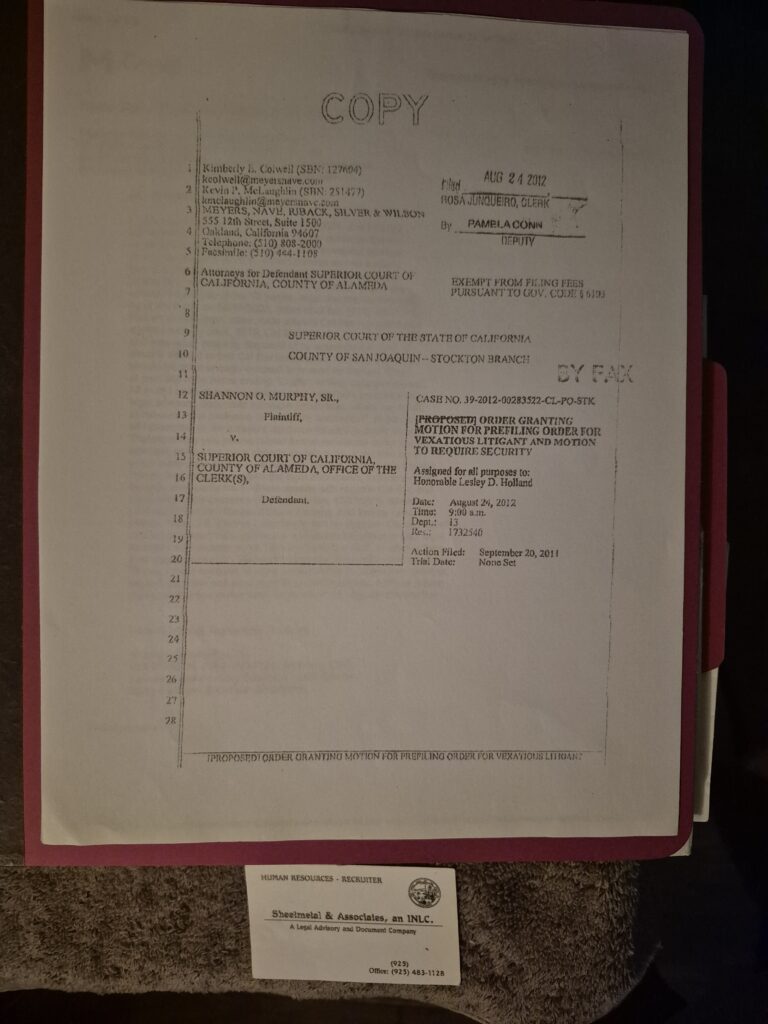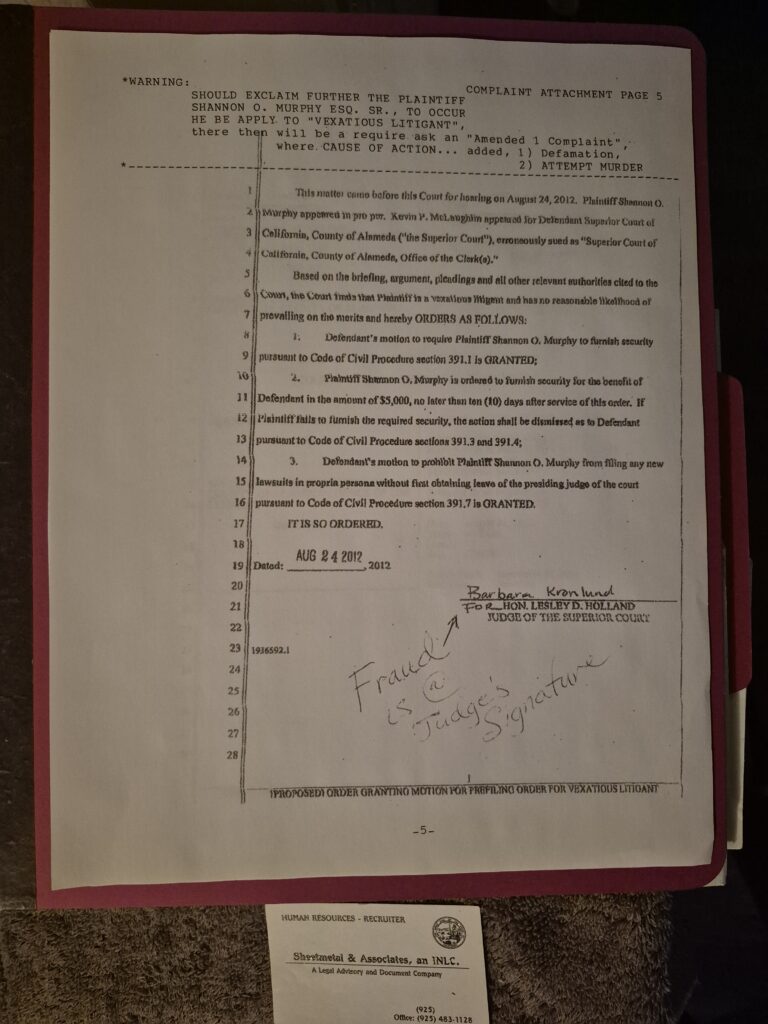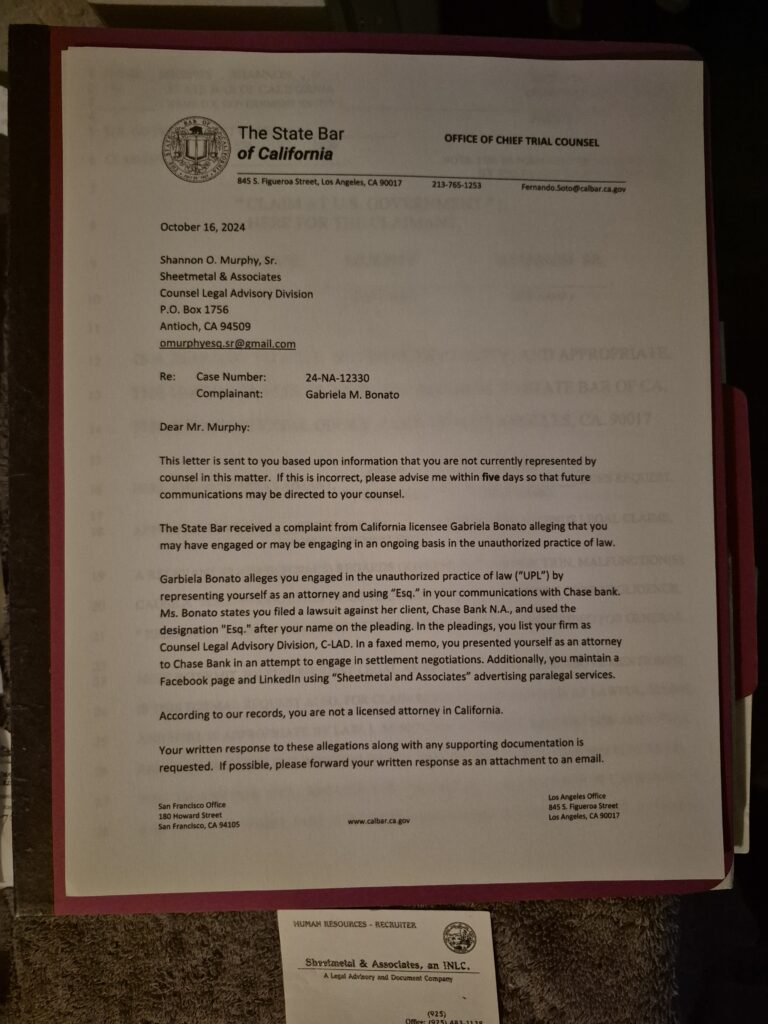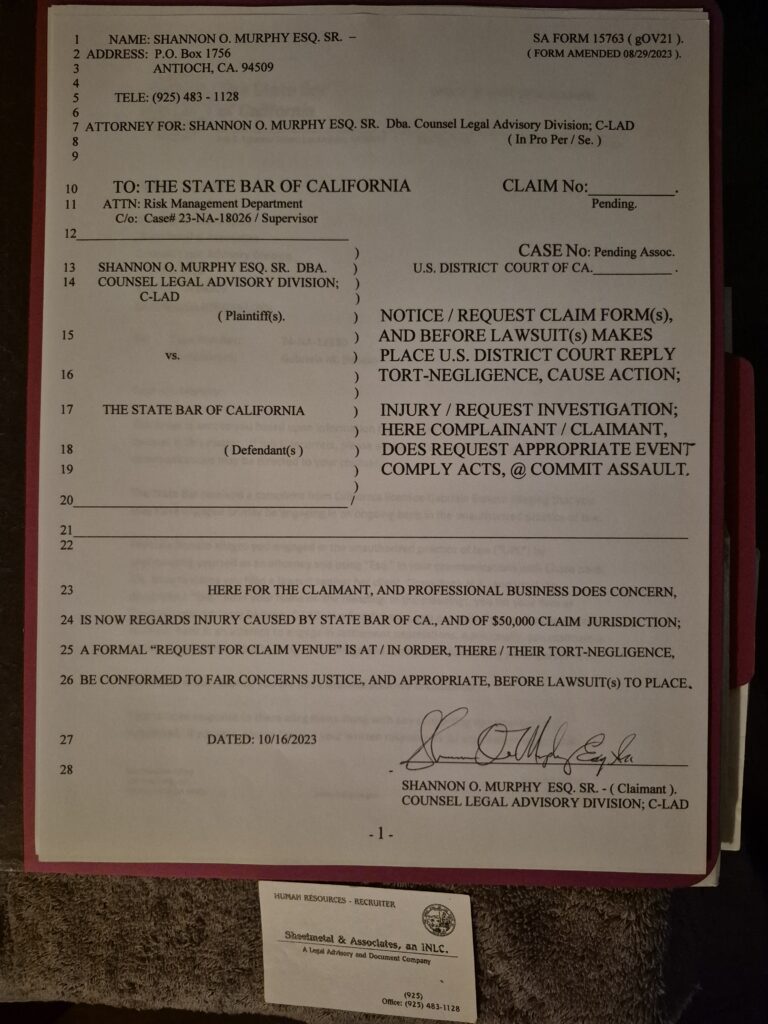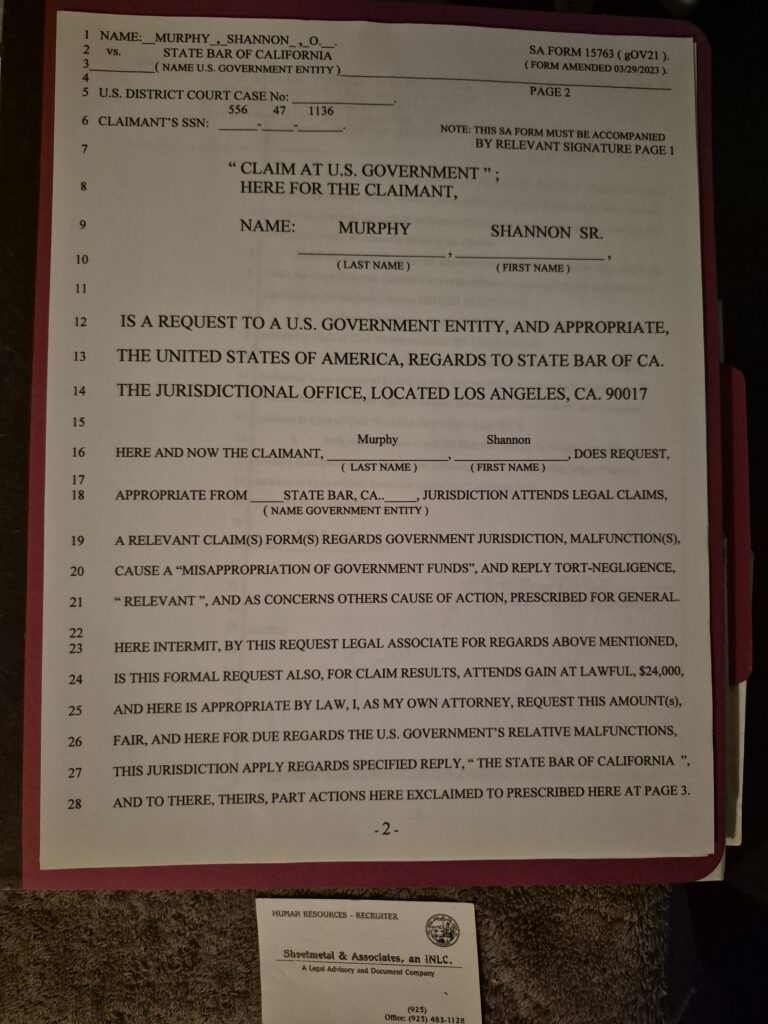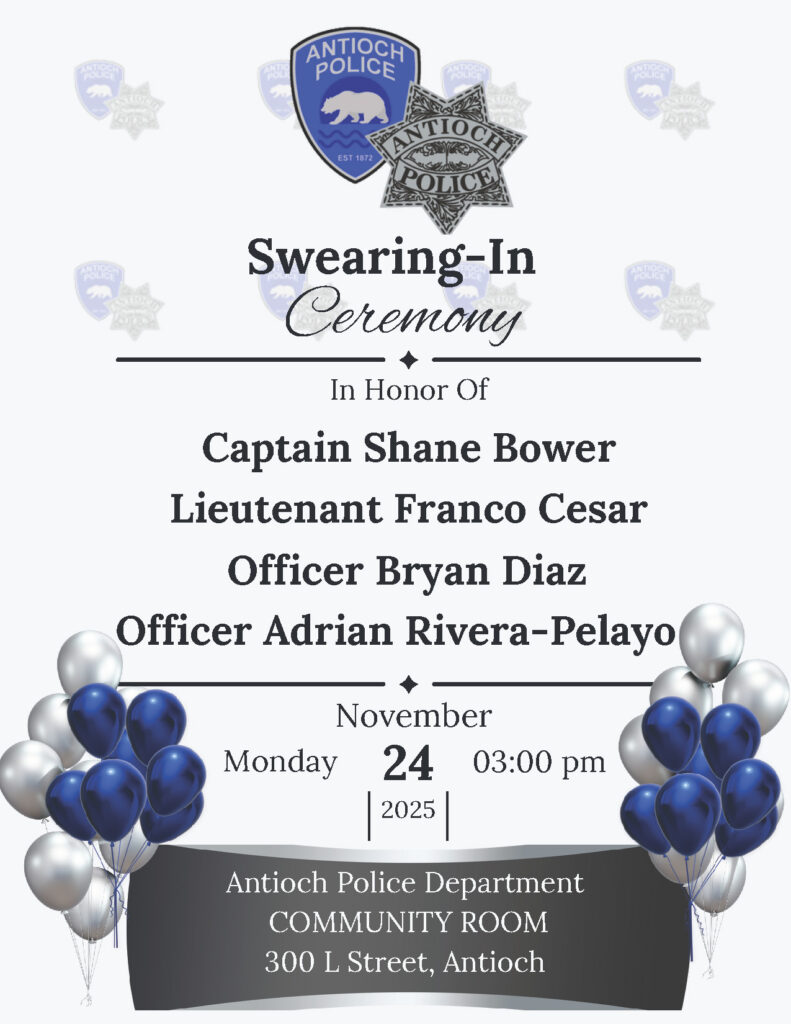East County man issued “Cease and Desist” notice from State Bar for unauthorized practice of law
Monday, December 1st, 2025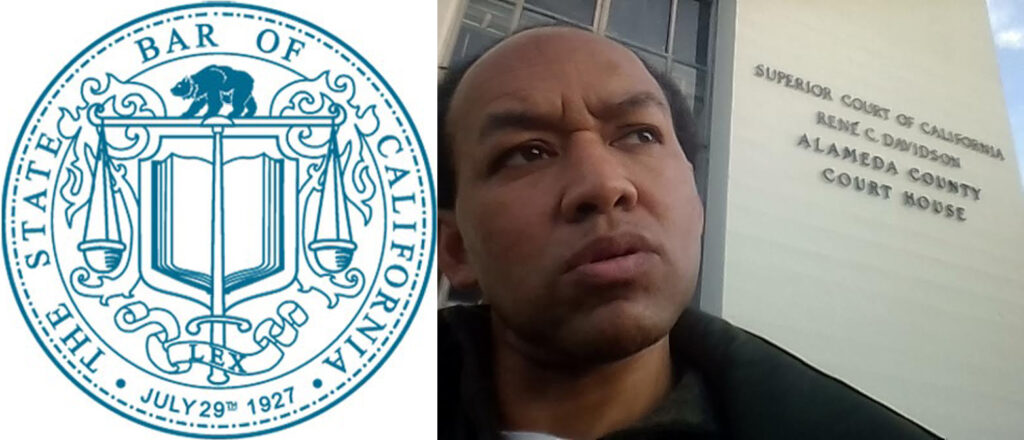
Says “no one” at his company “practices law” and is a “victim of assault, harassment and slander by The State Bar”
Previously sued Antioch PD, IRS Taxpayer Advocate, U.S. District Court Eastern District of California Office of the Clerk and O’Reilly Auto Parts who labeled him a “vexatious litigant”
By Allen D. Payton
In a post on their X account on Nov. 25, 2025, the State Bar of California announced, “In September, the State Bar of California issued the (below) Cease and Desist Notices for the unauthorized practice of law in Contra Costa, Marin, Orange, Sacramento and San Bernardino Counties. Included in the list of Nonattorney Actions was Shannon O. Murphy, Sr., dba Sheetmetal and Associates and Counsel Legal Advisory Division (C-LAD) of Antioch: UPL Cease and Desist Notice sent 09/25/2025.
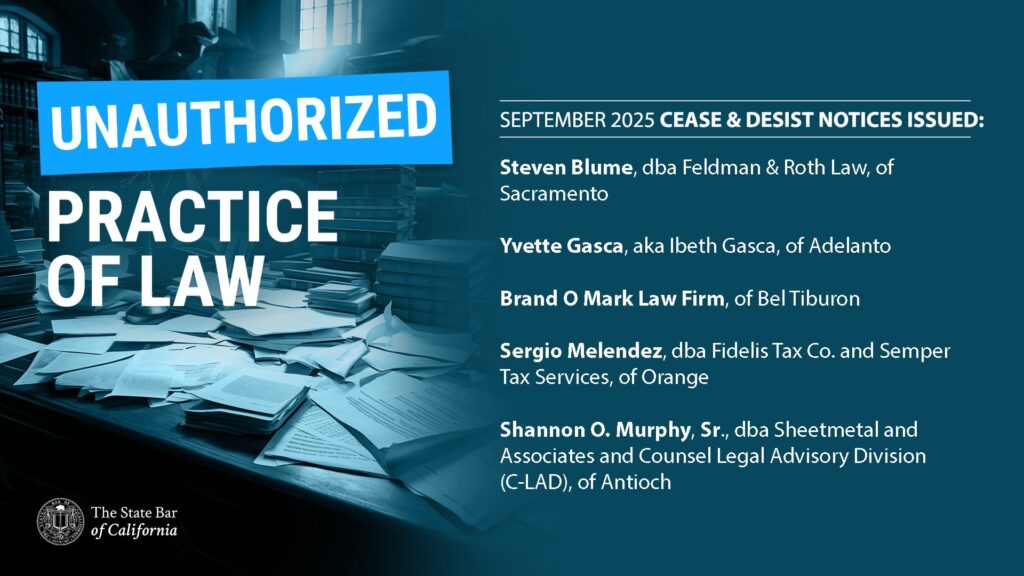
However, according to his LinkedIn profile, Murphy is Chief Executive Officer at paralegal company at Sheetmetal and Associates in Pittsburg and according to Yelp, his office is located in the Marina Heights Apartments at 2 Marina Blvd. in Pittsburg.
The description on Yelp reads, “Sheetmetal & Associates the coordinate ‘INLC.’ is enable invented by Mr. Shannon Murphy Esq. Sr.; CEO. We at Sheetmetal & Associates, strive to support the legal business community, public, commercial industry, with there / their at Superior Courts of California legal form(s), correspond variety court’s clerk appointment. We also assist, to advocate, there for IN PRO SE. / IN PRO PER. participations court case, the proceedings. We provide service of documents to court clerk, for filing(s; minimal “FILING” suggest, as attorneys welcome.
The Yelp post continues, “History – Established in 2006. Sheetmetal & Associates (A Legal Company), began it’s address to public legal concern, 2006, after attending, at owner Shannon Murphy Sr. a Superior Court small claims case, Alameda, Ca. Since then, Richmond, Ca. and Pittsburg, Ca., Sheetmetal & Associates has based our home.”
Multiple Lawsuits Filed
According to Justia, in 2023 he sued the Antioch Police Department for civil rights violations, in the U.S. District Court for the Eastern District of California and last year, Murphy sued that court’s Office of the Clerk. According to Trellis, in 2021, he sued O’Reilly Auto Parts who, in response, filed a motion to declare Murphy a vexatious litigant. Also, in 2021, according to casemine.com, he sued the I.R.S. Taxpayer Advocate.
State Bar UPL Complaints
According to the State Bar, “Complaints of the unauthorized practice of law (UPL) are reviewed by the State Bar’s Office of Chief Trial Counsel (OCTC).
Complaints from outside parties and matters that the State Bar initiates itself that allege UPL by a nonattorney are then investigated by the State Bar’s dedicated UPL team.
Where the investigation uncovers an isolated instance of UPL, OCTC sends a “Cease and Desist” (CND) letter. Recent CND letters appear in this section. The CND letter serves as a warning and puts the respondent on notice that certain services/actions may violate the law and constitute the unauthorized practice of law.
Complaints raising repeated or multiple violations do not receive a CND letter but may result in the State Bar taking action in Superior Court to obtain an order to shut down the unlawful law practice.
Murphy Responds, Claims He’s “Victim of Assault, Harassment and Slander by The State Bar”
In response to a voicemail message left for Murphy, he responded via email on Sunday, Nov. 30 with the following statement:
Dear Sirs, Allen, Others, Antioch Herald Agents,
I am here comply mine jurisdiction, as I still remain, owner and operator of the sole proprietorship, legal
advisory and document company, name Sheetmetal & Associates, an INLC., originate Pt. Richmond, Ca.
I do answer your phone call message, Mr. Allen T. [sic], left for me yesterday, 11/29/2025, respectively you
say you wish to provide me chance to here [sic] my side, of the rudely placed “Cease Business” by State Bar,
inappropriate concerns law…”
Please do find, review, the attached array of legal documents included, that to explain more about how, my “legal company”, has been continuously victim of assault, harassment and slander by The State Bar Of California, over 10 years; Sirs, ladies and gentlemen, Sheetmetal & Associates, an INLC., is by U.S. law, authorized to operate as does, perform it’s own representation attends courts in at U.S., Sheetmetal & Associates, an INLC., is not a corporation, although, a sole proprietorship has advantage, options,
“represent itself”, instead of having to find, hire corporate ttorney jurisdiction, only, since would be of corporation.
Sirs, besides that way, we at Sheetmetal & Associates, an INLC., as I have repeatedly informed the rude, choice of State Bar officials who have continue theirs of ignorance to just understanding, and by any evidence is concern, that “no one of Sheetmetal & Associates, an INLC. practices law”; “We do not, and have not, “ever”, represent anyone, for that to be theirs attorney, lawyer, at any jurisdiction, court of law”.
…”Please sirs, take that check to the bank, cash it, and bring me back my change!”. For yours cordial, information, people, agents available, Antioch Herald,…”Sheetmetal & Associates, an INLC., has already warned, and provide notice to State Bar, that they are apt become, and soon, defendants at court of law,
we will soon apply a class-action lawsuit against the State Bar”, cause of action includes, 1) Assault, with intent commit serious illness, or even murder, 2) Tort Negligence, 3) Injury, Illness, 4) Harassment, 5) Defamation of Character, and possibly other.
Note, Antioch Herald, that Sheetmetal & Associates, is currently seeking a better professional attorney, and is announcing public, that there is apply now a $5,000 reward for to anyone who has knowledge of a preferred, good, class act professional attorney, “who can resume Sheetmetal & Associates’, actions to courts”.
Thanks For The Opportunity Much Love,
Shannon O. Murphy Esq. Sr.
Sheetmetal & Associates, an INLC., CEO.
———
Murphy also provided copies of several court documents, which can be seen below.
Complaints about the unauthorized practice of law? Let the State Bar know here. Visit the California State Bar’s website to view Cease and Desist Notices by county: www.calbar.ca.gov/Public/Discipline/Nonattorney-Actions.”
